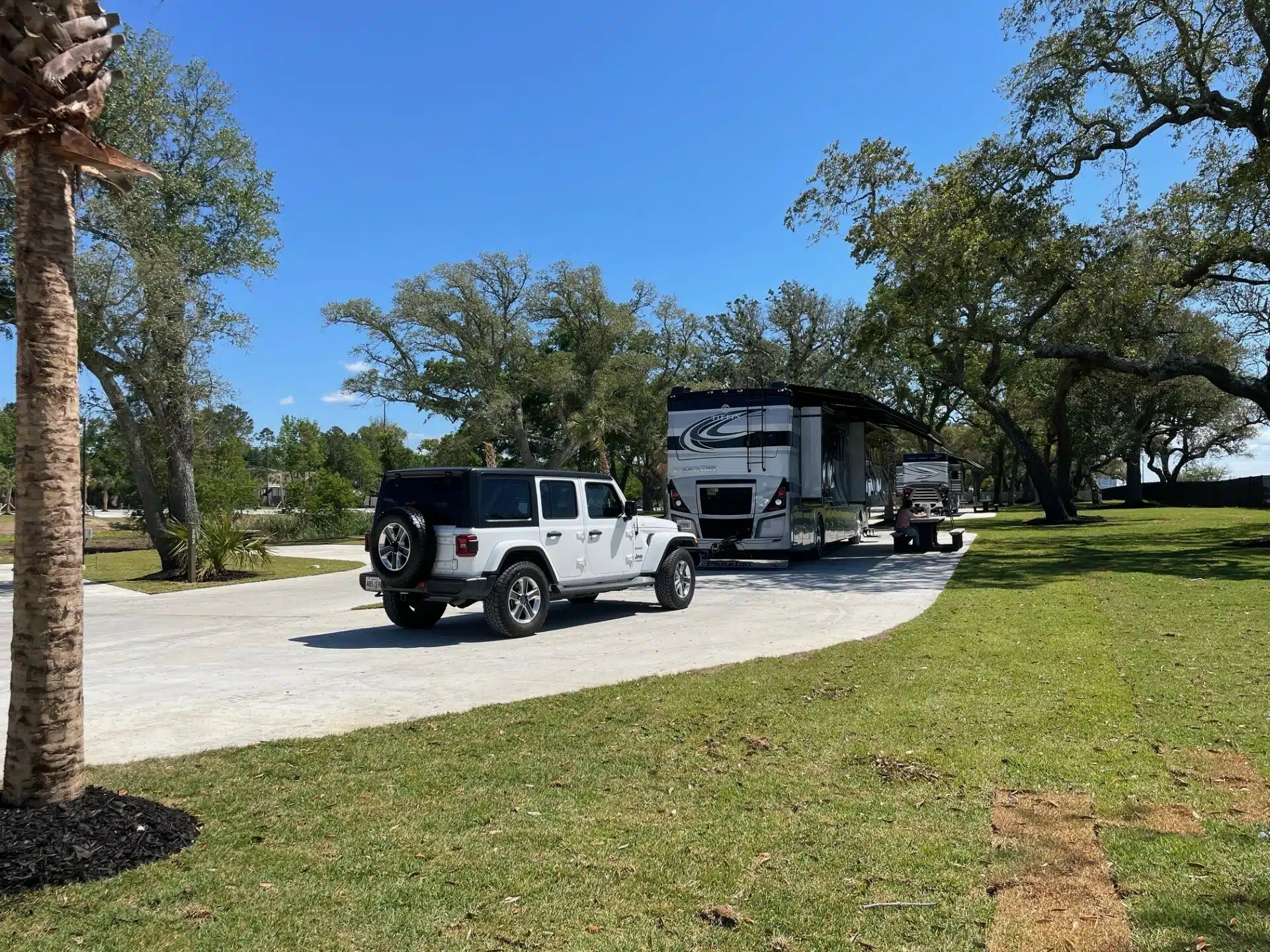Embarking on an RV journey opens up a world of adventure, flexibility, and spontaneity. Whether you’re a seasoned RVer or considering your first trip in an RV, some preparation can make a big difference in your experience. In this guide to RVing, we’ll share tips and tricks for planning a vacation that will make your RV vacation enjoyable and memorable from start to finish.
Choose the Right RV
The first step in planning your RV vacation is choosing the RV itself. If you have a vehicle capable of towing a trailer, you may want to consider bumper pull or fifth wheel trailers. These allow for more flexibility, as you can park, unhook, and use your vehicle for sight-seeing or other activities.
If a motorhome is more in-line with your needs, you’ll want to consider factors like size, amenities and budget. Class A motorhomes offer luxury and space, but are large and more expensive. Class B camper vans are more compact and fuel efficient while still offering the basics. A Class C motorhome is a good balance between the two, offering space on a more modest budget. Keep in mind that with motorhomes, you’ll need to either tow a personal vehicle, call a driving service, or plan on taking the RV with you on your off-site adventures.
Practice Driving and Parking
Whichever RV you choose, you’ll want to spend time practicing with it. Choose a quiet street or an empty parking lot to practice basic maneuvers like parking, backing, and unhooking (if you have a trailer). Make note of any blind spots, the turning radius, and overall size of the RV, and familiarize yourself with its safety features. After practicing a few times, your first campground experience will be much less stressful.
Plan Your Route
Consider your destination, but also plan for some stops along the way. RVing presents some flexible and unique options for travel, and there are many campgrounds and RV parks across the US that offer one-of-a-kind experiences. Avoid routes with narrow roads or low overpasses, and set a course that steers clear of large cities if the thought of navigating an RV through heavy traffic seems daunting.
Make Reservations
Peak seasons bring out campers from all over the US, so be sure to make reservations ahead of time. Choose campgrounds based on amenities, location, and hookups that suit your family’s needs, while factoring in the time of the year that you’ll be traveling. For example, a coastal rv resort on the beach offers enjoyable year-round activities, with peak seasons being in the spring and summer.
Pack with Purpose
The space available in RVs varies, but in general, you’ll need to plan to pack: clothing, toiletries, first aid kit, bedding, cookware, and groceries for basic meals and snacks. Make sure all items are secure in cabinets and drawers, with the appropriate safety features engaged. Other items specific to RVs that will need to come with you on your trip include: leveling blocks, hose for potable water, separate hose for gray (sewage) water, electrical adapters, and a toolkit for basic repairs.
Stay Flexible
Spontaneity is one of the benefits of traveling in an RV. Weather, road conditions, or other unforeseen circumstances may require you to make some adjustments along the way. But RVs offer the option to stay in a destination longer, or make a spontaneous overnight stay with ease and minimal planning.
Enjoy the Journey
Above all, savor the journey and enjoy the freedom of the open road. Take time to appreciate scenic views, explore new destinations, and make lasting memories with friends and family. Consider unplugging from technology and immerse yourself in nature to rejuvenate your mind along the way.
Consider a Luxurious Experience
Gulfport Luxury RV Resort is the perfect blend of luxury and coastal charm. Our beach-side RV sites offer an unparalleled experience, and our many on-site, year-round amenities offer something for everyone in your family. Reserve your RV site, or contact us to plan your next RVing adventure.



